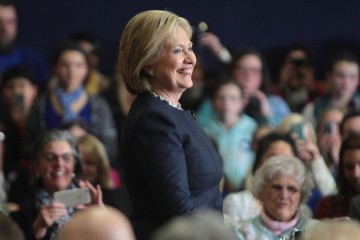
Clinton v. Trump: How Hillary Wins the Narrative Game
In the likely event that Hillary Clinton secures the Democratic nomination by the end of May or early June, the task of uniting the party behind her will be much less onerous than that of whoever emerges from the GOP field. For Republicans, a ‘brokered’ convention looms on the horizon. And, given the severely fractured status of the conservative movement in America, it will be hard for any candidate—Trump or otherwise—to appeal to a national constituency that seems to lack any consensus on what it means to even be “conservative.” Secretary Clinton, on the other hand, would have the time and resources to bring unity to her platform and to her party following what has been an impressive challenge by Vermont Senator Bernie Sanders.

Angola’s Perfect Storm
In a new article for Foreign Affairs, I discuss the perils of Angola’s reliance on declining oil revenues. Here are the first few paragraphs. In early 2014, Angola, sub-Saharan Africa’s second-largest oil producer and third-largest economy, was flush with cash and confidence. The economy had expanded tenfold over the previous decade, and the government, which in 2002 won a resounding victory in the country’s long civil war, was unchallenged at home, a towering presence in regional politics, and a major investor abroad, including in Portugal, the former colonial power. Its national reconstruction agenda funneled tens of billions of dollars into infrastructure and transformed Luanda into a would-be African Dubai that attracted thousands of expatriates. The rule of Angolan President José Eduardo …
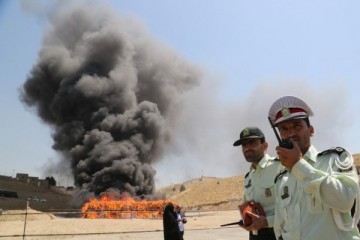
Could Iran be the next country to legalise cannabis and opium?
After Uruguay courageously legalised the use of cannabis under a new drug policy, could Iran be the next country to make it legal? From the outside, the image of Iran as retrograde and inherently conservative hardly fits with the reality of a more dynamic domestic political debate within. But drug policy is one of the areas of debate in which the Islamic Republic has produced some interesting, yet paradoxical, policies. Iran has a conspicuous drug addiction problem – which officially accounts for more than 2m addicts (though unofficial figures put this as high as 5-6m). Drug traffickers risk harsh punishments that include the death penalty. Yet Iran also has very progressive policies towards drug addiction, which include distribution of clean …
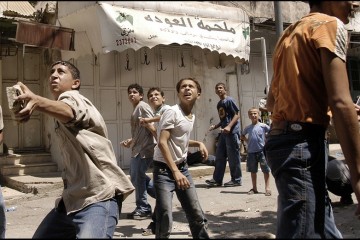
Academic Diary: Escalating violence in Israel, a view from Bethlehem
As I am sitting here writing this contribution at 8:50 in the morning, I can already hear signs of the relentless fighting that has been going on for over ten days around Rachel’s Tomb in Bethlehem: Soldiers shooting tear gas canisters, military jets are flying over the area, ambulances rushing to the scene and hundreds of impatient drivers waiting to cross the area honking without let-up. Riots had kicked off in the area in response to the current dispute between Israeli Jews and Arabs about the administration of the Temple Mount in Jerusalem. The Muslim religious site is administered by Jordan and Jews are allowed to visit but not to pray there. Increased Jewish visits in recent times have raised …
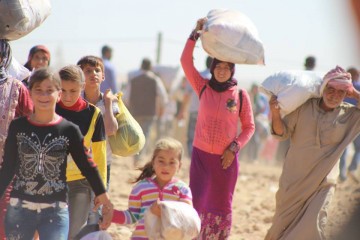
How likely is civil war in Turkey? More rights rather than borders could satisfy many Kurds
Is Turkey on the brink of civil war, given the recent violence against the country’s Kurdish population? How is this violence in Turkey related to broader events both in the Middle East and Europe? A major reason behind the recent violence in Turkey is that the Kurds experienced a recent political success in Turkey’s election in 2015: the pro-Kurdish Peoples’ Democratic Party (HDP) prevented President Erdogan from realising his dream to create an executive presidential system in Turkey, which would have implied taking more power from the parliament. At the same time, although Kurds have been immediate victims of the rise of ISIL in the region, they have also emerged as ISIL’s most potent military adversaries in the Kurdistan Region …
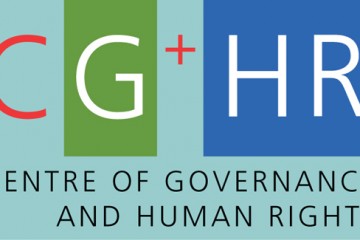
International intervention and the politics of building peace: ‘liberal imperialism’ or somewhat irrelevant?
International intervention in war-affected regions is the subject of much academic attention. Scholars and policymakers alike have been keen to understand the impacts, positive and negative, that international actors have when striving for peace in foreign countries. More often than not, the continuation of violence in areas that have been subject to heavy intervention, from Sudan to DRC, has generated staunch critique of the potential of such programmes to achieve their stated aim of ‘peace’. Africanist scholars in particular have identified efforts geared towards the increasingly linked aims of development and security as not merely ineffective, but exacerbating dysfunctional politics, insecurity and poverty across the continent. Following the wider critique of the liberal peace, interveners from UN peacekeepers to human …
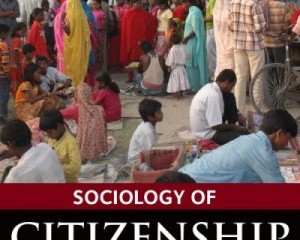
Moving Beyond Movements: Exploring paths of everyday citizenship in urban South Africa
In the rich literature that has emerged on social movements in post-apartheid South Africa, there have been many analyses that explore the degree to which particular social movements cooperate with the state or adopt a more antagonistic stance. Some break this picture down further, exploring the degree to which movements are able to cultivate or capitalise upon unique relationships with specific state actors or departments. Those kinds of accounts remind us that the state is, in reality, a collection of individuals and institutions that are often heterogeneous and fragmented, if not in active conflict with each other. This work has helped us to gain a more nuanced understanding of South Africa’s political landscape and the nature of statehood and citizenship within it.
Less prevalent in the literature on popular politics are studies of individuals and the diverse relationships they hold with state actors and institutions as they traverse between social movements and what Raul Zibechi would call ‘societies in movement’. And yet, this focus on ideas, identity, and practice in the midst of everyday life is crucial if we are to grasp what it means to be involved in grassroots politics.
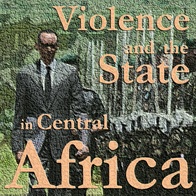
The Burundi Crisis beyond the third Term (3/3): Regional Implications
The important attention the Burundi crisis has received from the international media shows not only concerns with the safety and future of millions of Burundians but also fears of a regional contagion. Among the key questions are the regional support of president Nkurunziza, the likelihood of a foreign intervention, the lessons for the power-sharing model of peace-building Burundi incarnated, and possibilities for regional and national actors to solve the crisis.









